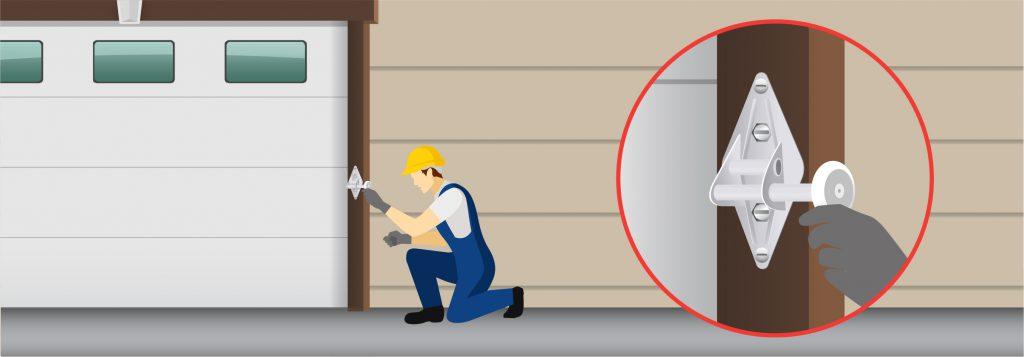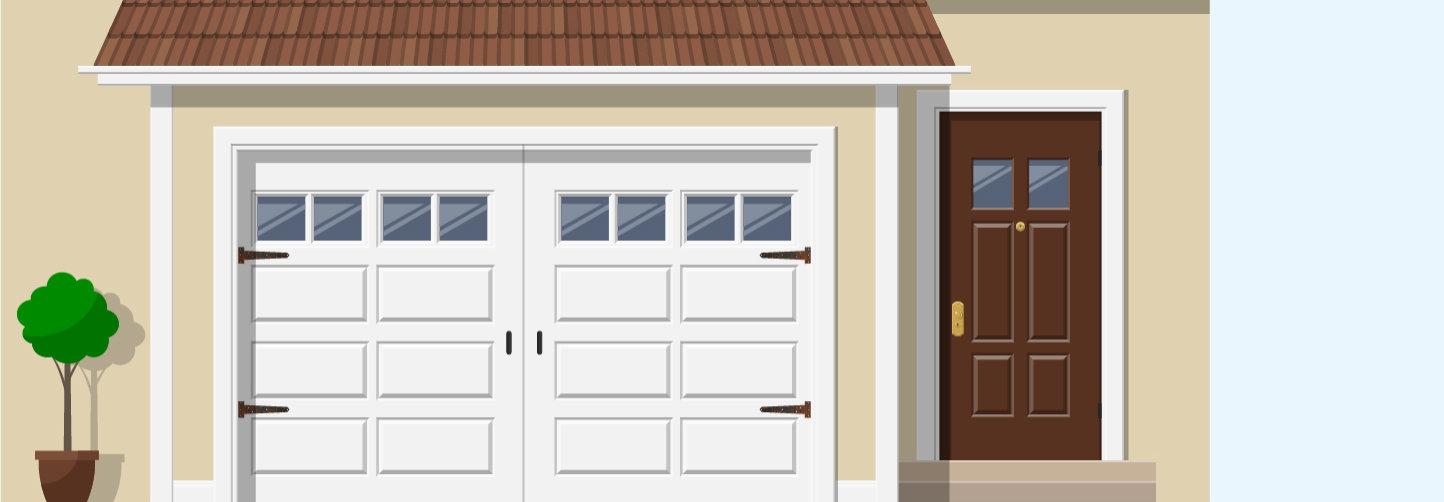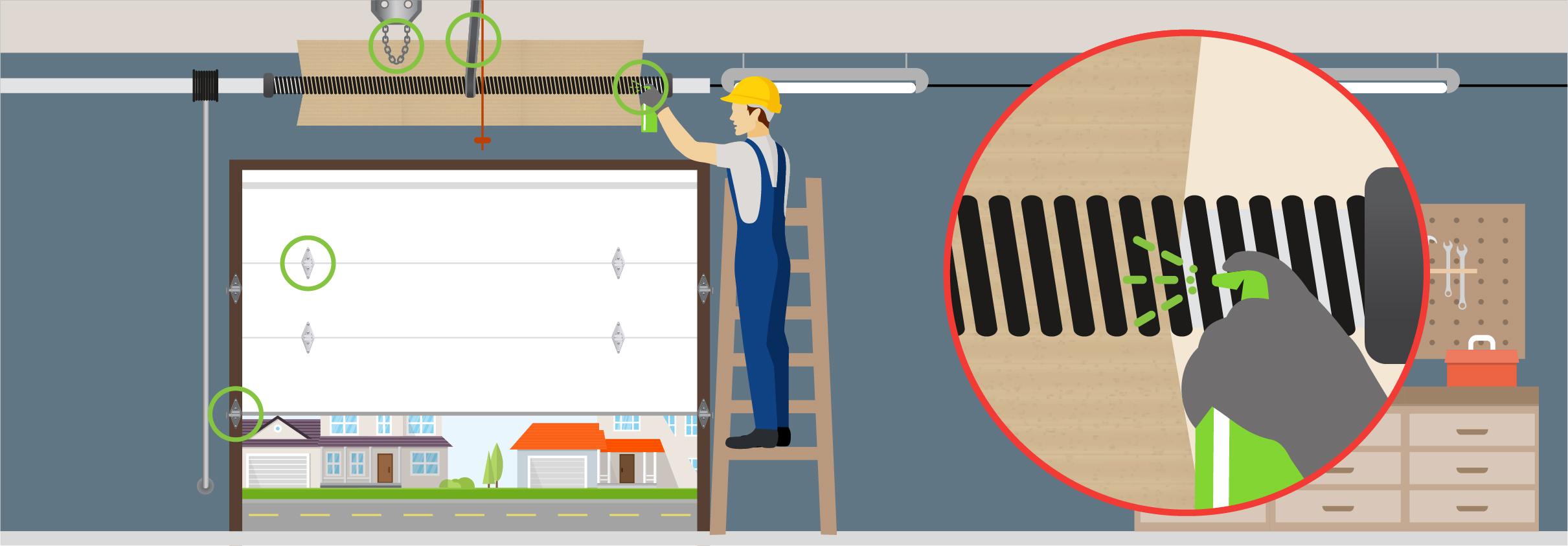What Are Garage Door Rollers & How Do You Fix Or Replace Them?
Vital to the smooth operation of your garage door, it’s important to choose the best rollers for your door – and to maintain their quality for the future.
In this comprehensive guide, we answer all of your pressing questions, including how to identify damage, how to maintain and repair rollers, and how to choose the best rollers on the market.
Different types of garage door rollers
Rollers are constructed from a variety of materials, and some also come with ball bearings within them – generally, those with ball bearings will enjoy a longer lifespan than those without.
- Plastic – made from plastic and lacking ball bearings.
- Nylon – similar to skateboard wheels, and have a ball bearing system within the wheel itself.
- Teflon – some nylon wheels are coated in teflon, and also have ball bearings. Teflon enables the rollers to glide smoothly along the track.
- Steel – available with or without ball bearings. The most sturdy type.
How long do garage door rollers last?
The length of time that a garage door roller will last and preserve its quality will entirely depend on a number of factors:
- Age of the roller – time will gradually wear away the roller, making replacement inevitable eventually.
- Height and weight of the door – heavier or taller garage doors put more pressure on rollers.
- Frequency of use – it’s simple maths. The more you use your garage, the more it the rollers will wear down.
- Material of roller – nylon rollers have a tendency to wear out more quickly than steel ones, which are usually more sturdy, durable and long lasting.
How do rollers get damaged?
Damage can be caused to rollers in a number of ways:
- Lack of lubrication – perhaps you’ve been a little lax with lubricating the rollers? Neglecting this task can result in a rust build-up, which can eventually render the rollers useless.
- Material – nylon rollers, or any type of plastic rollers, are more susceptible to wear and tear.
- Bent hinges – you may be surprised to hear that faulty hinges can impact rollers. Misshapen hinges can throw off the 90 degree angle of the door, putting more strain on the garage door rollers.
- Incorrect rating – always check that the rating for the rollers matches the weight of your door. Choosing rollers with a rating not suited to a heavier type of garage doors can cause the roller to wear out more quickly.
How to tell if garage door rollers need replacing
These signs may differ between types of rollers and types of garage doors – if in doubt, check with a professional who can give a more certain diagnosis.
- Popping sound – if you hear an unusual ‘popping’ sound every time you open or close your garage, this could indicate that it’s time to get the rollers replaced. It could be the sounds of the rollers.
- Loose roller – if the roller is loose or to easy to wiggle, it may be time to replace it. Ideally, a healthy roller should have no wiggle room.
- Cracked or missing rubber – the performance of a roller will be hindered if it’s missing pieces or cracked.
- Vibrations when opening/closing the door – this shuddering feeling may stem from loose rollers, or rollers that are likely to leave the rails/tracks.
- Rust – metal rollers are susceptible to rust, if they are not regularly cared for. If they become too rusty, this can radically reduce their quality.
How to lubricate garage door rollers
Generally, you should be lubricating the moving parts of your garage door (including the rollers) at least every six months. A squeaky garage door is also a sure sign that lubrication is needed.
Take great care when doing this – be sure not to trap your fingers.
- To lubricate the rollers, make sure the door is closed first.
- If the door is electrical, ensure you disconnect the electric opener before you start the work.
- Always make sure to lubricate the ball bearings within roller wheels.
- Apply a silicone-based oil to the rollers, both the shafts and the bearings.
- Wipe away any excess lubricant to avoid the garage door becoming unbalanced.
How to fix or replace garage door rollers
It’s important to quickly repair faulty rollers – leaving it too long can stress other parts of the door, including the roller, which can lead to other issues. Attempting to DIY fix or replace your own garage door rollers can come with its pitfalls. For example, when replacing rollers, the entire garage door may fall away and cause injury. Also, any work that involves moving parts always has an element of danger.
Don’t chance the potential injury, or the risk of making the problem worse – instead, get a professional to look at it. A specialist such as Doormatic knows the ins and outs of a variety of garage door makes and models, and can offer comprehensive servicing and repair for any issue.
Doormatic are a leading garage door specialist, providing high quality garage doors and parts across Surrey, Kent and Buckinghamshire. To boost the longevity of your door, we also offer repair and maintenance to tackle any problems if they arise – including roller issues. Get in touch to find out more.






